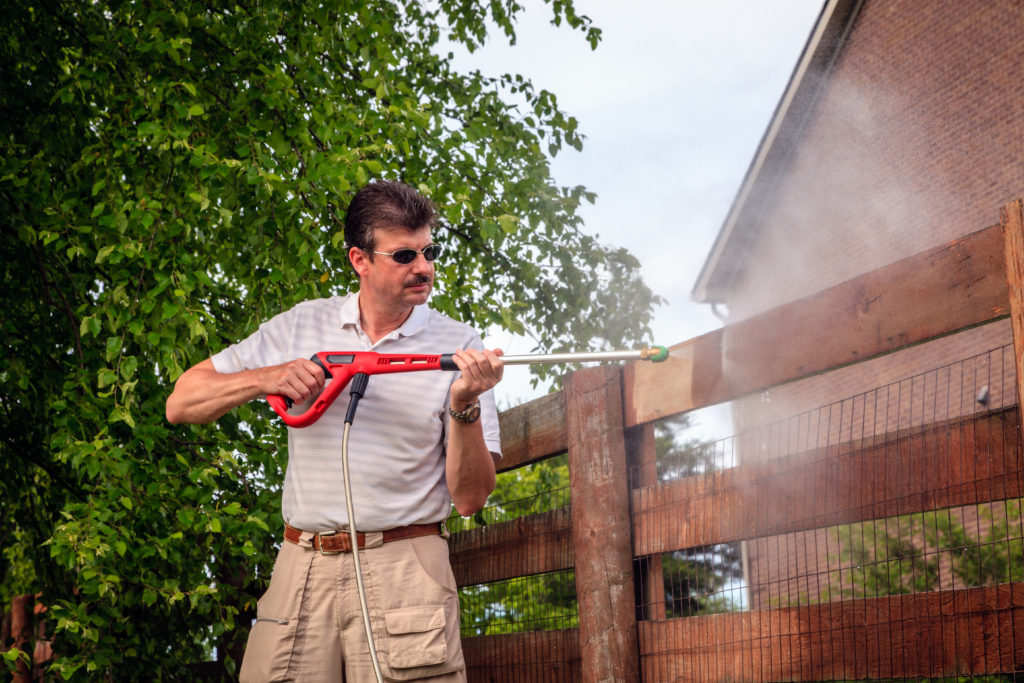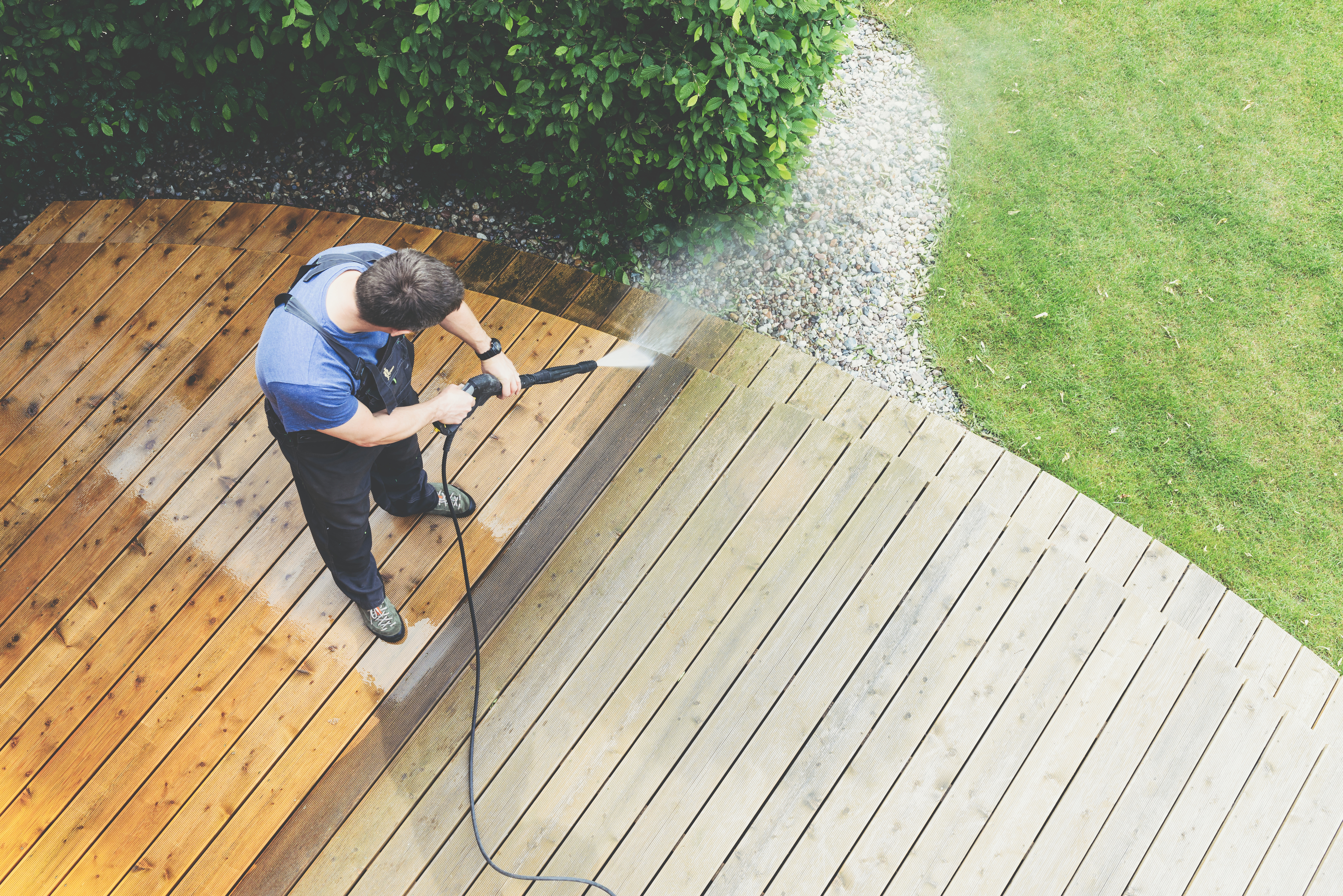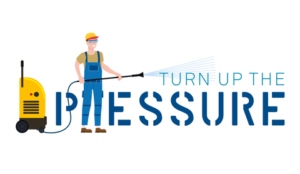
Pressure washers are handy and convenient cleaners. They can take on plenty of surface grime in a safe and effective manner. But are they right for you?
Pressure washers are worth buying for outdoor cleaning projects. They are simple to use and can save you from spending big bucks on professional pressure washing companies. People who purchase pressure washers often feel that their investment is more than worth it.
Check out what to expect with pressure washers below.
What Pressure Washers Clean
Pressure Washers are a convenient all-around cleaner. They can simply be filled with water and, thanks to their high psi, get the job done. Or if you want a bit more extra cleaning power that’s specific to whatever is you’re washing, you can mix an approved detergent into the water.
Whatever you need cleaned outdoors, pressure washers can likely do it.
Houses
No matter the size, houses take a lot of effort and energy to clean. Pressure washers can get to tough-to-reach spots on the sidings. And if your roof is made of tile or another hard surface that attracts dirt, moss, mold, and mildew, pressure washers can take care of that as well.
The nice thing about using a pressure washer for your house is that you don’t have to expend much energy as you clean. Sure, it will take time, but it’s better than scrubbing with a giant, heavy brush for hours on end—which leaves your arms dead and your hands sore from gripping the handle for so long.
Pressure washers have enough force behind them that you can adjust how far the jet stream will reach, depending on what nozzle you use and how high of psi you want to project. All you have to do is maintain the direction you want the stream to hit, and you’re good to go.
You may not think that the outside of your house needs to be cleaned, but if you live in shady, windy, or humid areas, the siding and the roof can attract all manners of grime. Mold and mildew are especially problematic due to the health hazards they pose. But guess what? Pressure washers can scrub them and more away when they’re combined with the right mold-killing detergents.
Because your house may be situated in an environment that isn’t going to change anytime soon, such as the humidity or shade, the surface buildup can be recurring. In this case, owning a pressure washer is great to have since you can do it yourself whenever you need to and not worry about hiring anyone else.
Whether you want to do a regular cleaning or need your siding and roof spotless for a paint job and other projects, pressure washers are the way to go.
Pavements
Dirt, moss, and weeds seem to love pavement. Your driveway, porch, sidewalk, court, patio, or other concrete-filled areas inevitably collect grime in the tough outdoor environment.
Pressure washers love pavements, too. Love to clean them. They pack the necessary psi to strip concrete pavements of any and all grime. They can even pick away weeds that sprout up in the cracks each summer.
For the toughest layers that have gathered on pavement, it’s recommended that you use a psi between 2,000 to 3,000 psi. But because not all pressure washers can reach these levels—or you don’t want to use that much force for various reasons—you can still effectively clean with lower psi levels. It may take a bit longer, but it will still get the job done.
Lower psi is necessary for pavers as well. Unlike concrete, which is a sturdy and resilient surface, pavers can become damaged if you aren’t careful about how much psi you use and with what nozzle tip. So if you do want to use a pressure washer on pavers, you have to be extra cautious to clean properly and keep them intact.
Decks

You may not think that your deck needs a pressure wash, but there are actually a couple reasons why giving it a clean has its benefits.
In certain environments, decks can collect a slimy residue that makes them slippery to walk on, which is potentially dangerous. While pressure washing makes the decks wet for a while, the film is flushed off from the deck surfaces. Once it dries, you have a safer deck to walk on.
And if the deck ever gets slimy again, guess what? You have a pressure washer at the ready to take care of it.
All decks, after a time, lose their color and start to splinter. When it’s time for a makeover, you need to ensure that it’s as clean as it can get for the best results. Pressure washing is an effective method because of its great psi and quick timing.
Even though you may want to do some extra scrubbing before or after, a pressure wash can help you get started on the main part of your deck project in no time.
Patio Furniture
Covered or uncovered, when patio furniture sits outside all season, there are bound to be leftovers on them, dirt being one of the primary culprits. Even when the furniture is being used, stains from drinks and food can create a sticky, yucky surface.
Rather than strain your back and shoulders cleaning the furniture, you can simply use a pressure washer to give them a good bath. Allow them time to dry in the sun, and guess what? They’re good as new, and you can sit on them without worrying about what sticks to your shorts when you stand up again.
Vehicles
Car washes definitely have a neat system to them, and for more deep cleaning, you can still go through one. But when you just need to get rid of a layer or two of dirt, you don’t need to spend money at a car wash—just use your pressure washer instead.
Pressure washer streams have a similar amount of force like the ones used at car washes. Better yet, you don’t need to get frustrated if the car wash misses a spot or you run out of coins before you get the rinse you want.
By swapping out nozzle tips, you can have a concentrated stream or a softer one. And since you can dilute the water in the tank with some car washing detergent, you’ll have your vehicle looking shiny and new in no time, all while saving money.
Others
Pressure washers can clean much more, too. Fences that would otherwise be difficult to effectively clean become easy projects with a pressure washer. Barbecue grills that have caked-on grease and grime after long use will look brand new. Playground equipment that has seen better days will see even more better days once it’s been hosed down by a pressure washer.
RVs, four-wheelers, trailers, barns, fountains, statues—whatever you need to get cleaned, pressure washers can do it.
Types Of Pressure Washers
Before you jump on buying a pressure washer, you should consider that there are different models to help you get the job done in the best, easiest way possible.
Electric Models
On the smaller side, electric pressure washers are great to use for regular outdoor jobs that need a light to medium psi cleaning.
They’re also smaller and more convenient to carry around, which is great when you need to move several places for your job. And when it comes time to store away until the next you, you can easily tuck the electric model in a convenient space in your garage, shed, or basement.
Electric pressure washers have lower psi range, but for most cleaning situations, you don’t need to crank up the psi to the maximum level. Most electric models can reach up to 1,200 to 1,500 psi, so although you won’t be able to do any heavy duty industrial-type washing, you can still thoroughly and effectively clean with those levels.
Compared to gas models, electric models are also fumeless. Since they’re electric-operated, you can use them without accidentally inhaling anything that makes you light-headed and nauseated.
The downside to electric models is that they need to be plugged in to work. If you have to move away from the outlet or don’t have a nearby plug-in, you may be out of luck. Some electric models work with extension cords, but a few manufacturers say that the cord that comes with the model needs to be directly plugged in.
Gas Models
For more psi and heavy-duty cleaning, gas pressure washers work well. They’re bigger than electric models, which means they are clunkier to store and pack around, but they can still do the same jobs and then some if you need the pressure washer to pack more punch.
Gas pressure washers reach anywhere from 3,000 to 5,000 psi. They require fuel to operate, so as long as you have some prepared when you use one, you should be able to handle any cleaning job. This also allows you to pack your gas pressure washer to areas that an electric pressure washer may not be able to reach.
Heated Pressure Washer
Heated pressure washers are more expensive, but they come with the added bonus of hot water cleaning. Grime that may not come off as easily with a regular cold jet stream doesn’t stand a chance when the water is heated as well.
Steam from the heated water also softens up more deep-seated grime, giving you a better clean that’s reminiscent of a professional car wash.
Heated pressure washers typically come as electric models for personal use. This may be irritating for some, but electric pressure washers with a heating feature are still much more fairly priced, falling in the $200 to $400 range.
Gas pressure washers that heat water mostly come in an industrial size, putting them at $2,000 and higher. Not only is this costly, but for many of the outdoor cleaning jobs that you’ll undertake, you won’t need a pressure washer this big.
Potential Pressure Washer Problems
Now that I’ve talked about all the great reasons why you should buy a pressure washer and all the ways it can clean, let’s discuss a couple issues you may face with one.
Accidental Damage
With an incorrect nozzle and too-high psi, your pressure washer may inadvertently chip away at paint and wood. It can also cause pavement to crack, crumble, or come loose, depending on the surface and style.
Pressure washers can be troublesome because if you make a mistake while you’re learning how to use one, you can cause damage in a spot you wanted looking clean and spotless.
Fortunately, a solution to this risk is that you start with a low psi and a nozzle that spreads the jet stream in a wide surface area, which lessens the concentration. As you work, you can slowly work your way up to different nozzles and more pressure until you reach a point that works well for the cleaning job and keeps your items and property intact.
As fun as pressure washers may be, it’s better to start off slow and safe rather than go full force.
Wear And Tear
Like with any tool, the longer you use it, the more likely it is to break down.
Electric pressure washers are known to sustain damage because they’re made with more plastic pieces, whereas gas pressure washers last longer and don’t need as many replacement parts because they’re built with industrial purposes in mind.
Finding the right parts and pieces to your model may be difficult and expensive, depending on what make you have and how old it is.
That being said, pressure washers are hardy, so as long as they’re maintained before and after use and stored in a place that doesn’t expose them to the elements, you can expect a tool that will serve you for years to come.
Final Thoughts
Anybody can put a pressure washer to good use, and if you want to take on more DIY cleaning projects for your home, vehicles, and property, then owning one will suit you well.
If you don’t feel the need to do much outdoor cleaning on a regular basis, then you probably don’t need to purchase one unless you have a specific project in mind that needs a pressure washer to do the job.
Hopefully, this article can help you with your pressure washing priorities. Happy cleaning!
